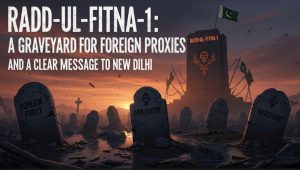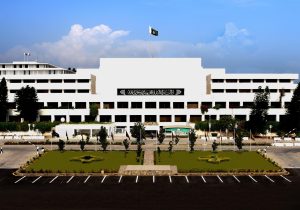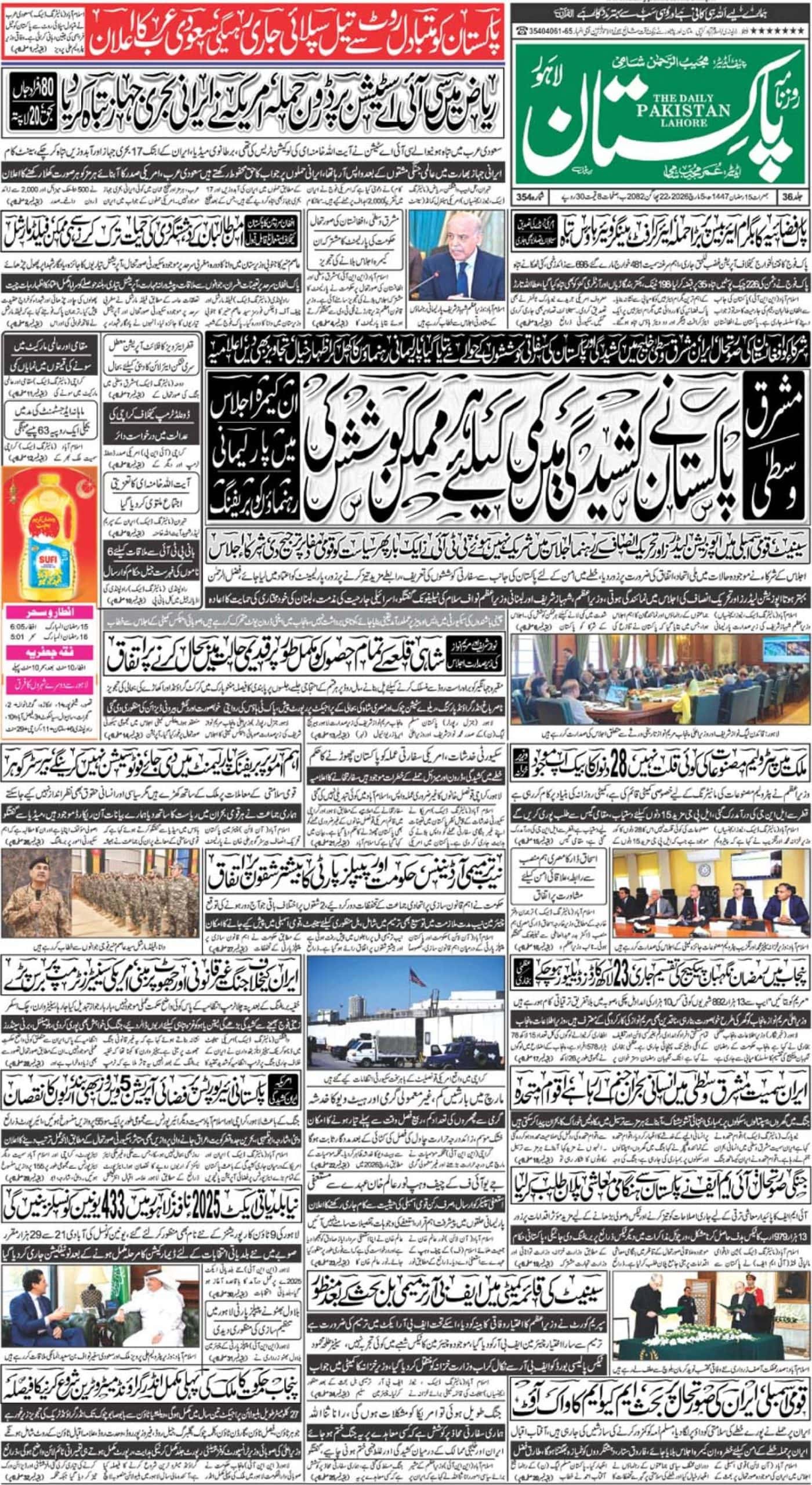“No Rothschild is English, No Baruch, Morgenthau, Cohen, Lehman, Warburg, Kuhn, Kahn, Schiff, Sieff or Solomon was born an Anglo-Saxon. And it is this filth that you fight for. It is this filth that has destroyed your empire. It is this filth that elects and selects ‘your politicians’.” –Ezra Pound
The Government of Pakistan has invited the Rothschilds to take part in the extraction of gold and copper from the Reko Diq gold mines in Baluchistan. It will therefore be appropriate to bring to light the horrendous and unforgivable brutality, inflicted by the Rothschild-controlled British on the Boer population. Women, children, and unarmed men were subjected to the most inhuman treatment during the second Boer War. This war lasted two years and eight months – from 1899 to1902. It became the “bloodiest, costliest and longest” war “the British Army had fought in almost a hundred years.” Close to half-a-million (448,725) British troops fought a mere 40,000 Boers, who were not even a regular army, but were peasants defending their land! What a shame!
This war was instigated by the Rothschilds and the crimes committed in this war by their tool, the “civilized” British, are one of the most shameful episodes in the whole of human history. This war was about wresting the gold of Witwatersand in Transvaal, from the mainly Dutch settlers of South Africa (Boers as they were called), who owned that land and were, therefore, the rightful owners of the gold and diamond wealth of the region. It was a war of sheer and naked greed, and nothing but greed.
If one looks at the map of South Africa one notices, in its south-west, a region known as the colony of the Cape of Good Hope, also known as Cape Colony. The Dutch ruled the Cape of Good Hope from 1652-1795. It was then occupied by the British, and was formally ceded to the British under the Anglo-Dutch Treaty of 1814. However, many of the Dutch (and north German) settlers, for various reasons, were dissatisfied with British rule. Therefore, between 1835 and 1837, many Boer settlers trekked northwards with their cattle, carriages, bibles and belongings. They settled in two contiguous regions, that came to be known as the Boer republics of Orange Free State (OFS) and Transvaal. In 1852 and1854 Britain signed separate agreements with Transvaal and OFS respectively, allowing the Boers the right to govern these regions independently.
In the year 1869 the British renewed their pledge for the independence of OFS. But a few months later, an 83-carat diamond was discovered in the southwestern region of OFS. And that discovery aroused greed, and led to British aggression. On trumped up pretexts, the British occupied that portion of OFS in 1871. So much for the British regard of signed agreements. The president of OFS took the British to court, and in 1876, a British judge ruled that the annexation was illegal. But the judge added the proviso that it was too late to return the chunk of land to its original owners as the population was now British! An amount of 90,000 pounds was offered as compensation! What an example of colonial British justice! In the words of historian James Froude: “This transaction [was] perhaps the most discreditable in the annals of English colonial history.”
It was in 1886 that gold was discovered in the Transvaal Republic and that instantly changed the dynamics of the region. If the discovery of an 83-carat diamond led to the capture of a part of OFS territory by the British, it would not be long before the “British” would covet the entire Transvaal region. Stephen Mitford Goodson has pointed out something very important about Transvaal. He writes: “As a result of mining development taking place in the Transvaal, it rapidly became industrialized. This was anathema to the British government whose policy was to import raw materials from the colonies and to retain all production in the mother country and oblige its colonies to import all their manufactured requirements at an immense profit. There was no income tax, and no levies were imposed.”
By 1899 Transvaal had become a progressive democratic state with railways, telegraph and telephone services. A local government system and an independent judicial system were in place with a parliament comprising of 24 members. “There were a few insignificant taxes, such as a nominal tax of 10 shillings per morgen (1.6 acres) on an original claim, prospectors’ licenses and diggers’ license. The state derived most of its revenue from customs duties, a 4% duty on transfer of land and a poll tax.” As a result of industrialization and mining activity there had been an influx of British nationals, who came to be known as Uitlanders (outsiders or foreigners). The number of Uitlanders eventually exceeded the local Boers but they were not given the right to vote unless they stayed for 14 years in Transvaal. The Boers wished to preserve their culture and identity in land that they had first occupied and which they owned.
Natty Rothschild (1840-1915), then the head of the Rothschild clan, aided by his erstwhile agents, Cecil Rhodes (1853-1902) and Alfred Milner (1854-1925), and a few others, precipitated the second Boer war. In order to understand how the brutal second Boer War came about one would have to give a little background about the main characters involved. Cecil Rhodes was the son of an English vicar. In 1870, at age 17, he arrived in South Africa to join his brother who was engaged in cotton farming. The cotton farm failed but the brothers found a job in the diamond fields of Kimberly in OFS, where he came to the notice of the Rothschilds.
In the words of Gerry Docherty and Jim Macgregor: “Backed by Rothschild funding, Cecil Rhodes bought out many small mining concerns, rapidly gaining monopoly control and became intrinsically linked to the powerful House of Rothschild. Although Rhodes was credited with transforming the De Beers Consolidated Mines into the world’s biggest diamond supplier, his success was largely due to the financial backing of Lord Natty Rothschild who held more shares in the company than Rhodes himself.” In 1890 Cecil Rhodes was elected Prime Minister of Cape Colony.
Cecil Rhodes had an ambition and that was to have a global British Empire. He wrote up his plans in the form of successively drafted wills. In the year 1877, when Rhodes was rich 24 year old young man, he composed his first will which contained the following objectives: “The establishment, promotion and development of a Secret Society, the true aim and object whereof shall be for the extension of the British rule throughout the world, the perfecting of a system of emigration from the United Kingdom, and of colonization by British subjects of all lands wherein the means of livelihood are attainable by energy, labor, and enterprise, and especially the occupation by British settlers of the entire continent of Africa . . . the whole of South America . . . the whole United States of America as integral part of the British Empire and, finally, the foundation of so great a Power as to render wars impossible, and promote the best interests of humanity.”
The secret society was eventually set up in 1891 and named the Society of the Elect. Rhodes headed it until his death in 1902. The other members were Alfred Milner (1854-1925) who replaced Rhodes when the latter died, William Stead (1849-1912), and Lord Esher (1852-1930). Natty Rothschild (1840-1915) was not formally a part of it but was not only completely on board with everything about it – he worked hand in glove with this group. The Society of Elect had another concentric ring around it, a secret group called the Association of Helpers, whose members belonged to the ruling British Elite but did not know of the existence of the Society of the Elect. With the passage of time new members were inducted into the Society of the Elect as well as the Association of Helpers and the structure probably continues to date. Docherty and Macgregor have observed: “Rhodes’ will was a sham in terms of altruistic intent. Throughout his life, he consorted with businessmen driven by greed, and did not hesitate to use bribery or force to attain his ends if he judged they would be effective.”
Alfred Milner was a civil servant who was a protégé of Sir Evelyn Baring, and had worked in Egypt. Milner had studied in Germany and was an exceptionally determined and ruthless man. Lord Esher was the closest confidante of every royal ruler from Queen Victoria, to Edward VII and others and was therefore extremely influential. As prime minister of Cape Colony, Rhodes attempted to gain control of Transvaal. Based on the incorrect premise of unhappiness of Uitlanders, he attacked Tranvaal in December 1895, through his agent Dr. Jameson. The president of Transvaal, Paul Kruger, was prepared and Jameson was defeated and arrested. This led to an uproar in Britain and the resignation of Cecil Rhodes as prime minister. However, through the machinations of the secret society that he had set up, he was spared and Jameson took the entire responsibility of the raid on himself. Things were quietly whitewashed and Jameson spent just a few weeks in prison.
Since Rhodes could no longer lead Cape Colony, Alfred Milner’s appointment as high commissioner of South Africa was managed by the secret society. He had the “intellect, intelligence and political astuteness” to reestablish the seriously damaged British authority resulting from the failed Jameson raid. Appointed in 1897, Milner spent that year assessing the situation in the country. He returned to Britain in 1898 and convinced the British secretary for colonies Joseph Chamberlain for the need for war. He also managed an effective campaign against the Boers in the British press so as to rally public support for the war planned by the secret society to which he belonged. The issue was presented to the public as the unfair treatment of Uitlanders in Transvaal. Gold was never mentioned in all this. Further Milner wished to trap Transvaal in such a way that Transvaal should agrees first!
When President Paul Kruger agreed to make concessions to the voting rights of Utlanders, reducing the limit of 14 years to 5 years, the concession was not accepted by the British. The British had decided upon war and behind all this stood the secret society: Cecil Rhodes, Milner, Natty Rothschild and the allies of Rothschild. Stephen Mitford Goodson writes: “In September 1899 the British secretary of state for colonies, Joseph Chamberlain, continued to deceive the Boers by intimating to them that a settlement would shortly be agreed upon, but at the same time, British troop reinforcements were being secretly dispatched to South Africa.” Within the Boer republics Jan Smuts, an agent of the secret society, stirred trouble, provoking sentiment against the British!
The massing of British troops on their border was alarming for the Boers. The Transvaal government sent an ultimatum to the British on October 9, 1899, asking the British government to cease “the constant bringing up of troops on the borders of the republic, and the sending of war reinforcements from all parts of the British empire.” The British wanted war and were massing troops for that very purpose. Two days later, war broke out. Kruger was exasperated since no agreement could be reached with the British, who were constantly increasing their strength. On October 12, 1899, the Boer soldiers entered Cape Colony and attacked an armored train carrying supplies. Thus the war began. Milner wrote to Lord Roberts: “I precipitated the crisis, which was inevitable, before it was too late. It is not very agreeable, and in many eyes not a very creditable of business to have been largely instrumental in bringing about a big war.” The crisis was not inevitable – Milner had designed it with his secret society cabal that way.
Stephen Mitford Goodson writes: “The overconfident British expected the war to be over by Christmas. In anticipation thereof they issued the Queen’s South Africa Medal, with years 1899-1900 engraved on it. These dates had to be removed when it transpired that they were opposed by a formidable foe, and instead the war lasted for two years and eight months, from October 11, 1899 to May 31, 1902.” Keeping in view the fact that the “Boers had only a part-time army, they enjoyed stunning successes in the initial phases of the war.” The mighty and arrogant British, who ruled half the world at the time, were unable to swallow these defeats. As a result, they flooded the region with four-and-a-half million troops! This massive regular army was to fight a part-time army of peasants and farmers that, at most, numbered 40,000. The part-time Boer fighter were outnumbered 1:12 by a regular army!
The Boers introduced trench warfare, a new method, later adopted by regular armies. But they were heavily outgunned and outnumbered. The main cities of OFS and Transvaal were captured by the British army in the months of March and June 1900 i.e. after six and nine months of a war that was expected to end in less than three months! The Boers then resorted to guerilla warfare. “A tiny force never exceeding 6,000 active Boers was able to frustrate and tie down 448,725 troops of the world’s largest empire.” The editors of Barnes Review, which published Goodson’s article, noted: “Even brilliant Confederate guerilla tacticians Gen. Nathan Bedford Forrest, Col. John S. Mosby and Gen. John Hunt Morgan would have to admit that it was an absolutely amazing feat.”
Had the British any sense of chivalry and honor, they would have allowed the Boers to live independently. But the Rothschild-Rhodes secret society wanted the gold of Transvaal at all costs. It was this greed that led to such terrible crimes by the British, that a century-and-a quarter later, any feeling human being can only feel utter disgust for men like the Rothschilds, Milner, Rhodes and their allies in this sordid war driven by sheer greed. So what did the British do? They resorted to a scorched earth policy in which they burnt farms so that the Boer fighters could not get hold of horses and food.
Docherty and Macgregor write: “The country was swept bare of everything that could give sustenance to the guerillas, including women and children. Some 30,000 Boer farms were burned to the ground and their animals slaughtered. It was the clearance of civilians, virtually ethnic cleansing, uprooting a whole nation …” A revolting picture of sheep and cattle, shot and left to rot by the British army, has been printed by the Barnes Review, and was perhaps, provided by Stephen Mitford Goodson. Such is the pervasive censor of the British Empire, imposed by the Rothschild-Rhodes-Milner secret society, that you will not find real pictures of this war anywhere in the mainstream media and books. The censorship continues to date.
Stephen Mitford Goodson describes the cruelty of the British. “The Boers were a cultured people. Many of them possessed beautifully crafted furniture, well stocked libraries, and almost every home had a piano or pump organ. When British troops entered their homes, they were only allowed 10 minutes to clear out personal possessions. All the contents of the homestead were destroyed, including children’s toys and bibles. The British would then smash everything in sight that had not been removed. Windows were shattered, and window frames, doors and floorings were ripped out and then piled up with the furniture and set alight. Besides the homesteads, stables and buildings were burnt.”
Goodson quotes a woman: “When the troops had gone I had nothing to eat, and all the objects on the house had been thrown about. When I begged one of the officers to leave a little food for my children he hit me with his fist so that I nearly fell to the ground.” Such behavior is incomprehensible to any human being. Goodson points out that farming equipment was wrecked, all crops, including bales of wool were destroyed, orchards were cut down, flower beds were dug out. They wanted to starve the ordinary population, particularly women and children, to force the Boer fighters into submission. These were noncombatants, these were women and children, this was private property, these were undefended habitations, and as such all these were protected by the Hague Convention of 1809. Britain was a signatory to the Hague Convention but the British army did not care.
Goodson states: “The Rothschilds’ troops showed unbelievable cruelty toward animals. If sheep and cattle were not bayoneted or shot, they would be herded into a kraal (corral) and then dynamited, and the badly mauled would be left to die. On other occasions sheep would be rounded up, the surrounding grass would be set alight, and they would be roasted alive. In some instances, the tendons of the animals would be cut – to save ammunition –and they were left to die an agonizing death. All of these horrific events would be witnessed by distraught women and children. At night the sky was reddened by the glow of burning homesteads.” This is a sick and maximally sadistic level of cruelty. The “civilized” British should be ashamed of this conduct of their army. This utter lack of compassion is a general characteristic of the Anglo-American armies worldwide. These armies are the most brutal, the most inhuman, the most cruel, the most savage, and the most murderous ever to stalk this wretched planet. The public of these countries is kept ignorant of these doings and the controlled media raises no voice. And if some information leaks through damage control is easily done.
Women and children were crammed into overcrowded carts to be transported to concentration camps. “The first wagon would be used to carry women, children and elderly people, while the second one in the concentration camp would carry their needs in the concentration camp, such as food, clothes, medicines and blankets. As soon as the convoy would start rolling the Brits would invariably set the second wagon alight. When there were no oxen available the women would have to pull the wagons.” What can one say about such “civilized” conduct?
Goodson writes further: “Women and children were also transported in open and closed railway cars. They were packed like sardines and traveled day and night for up to 72 hours without any sanitation and in some cars had to sit on wet cow dung. Usually one stop per day was allowed. 155,000 women and children – or almost two-thirds of the Boer population – were imprisoned in these extermination camps.” These were the first ever concentration camps of modern history and the men responsible for these were, above all, Natty Rothschild, Milner and Rhodes. Lord Kitchener was the military leader, and had the secret society cabal wished, the scorched earth policy and the attendant cruelty could be stopped. But it was their policy – they wanted absolute Boer surrender. They opposed any attempt at accommodating the Boers and opposed Kitchener when he wanted a negotiated peace.
There were 45 camps for Boers and 64 more for native Africans. The total number of inmates in these camps by June 2001 had, according to data of the British government, fallen to around 118,000. There were 93,940 whites and 24,457 blacks. These numbers when juxtaposed with the number of camps for whites and blacks indicate the enormous overcrowding in white camps. Docherty and Macgregor write: “The vast majority in camps were women and children. Inadequate shelter, poor diet, total lack of hygiene and overcrowding led to malnutrition and endemic contagious diseases such as measles, typhoid and dysentery. Coupled with a shortage of medical facilities, over 26,000 women and children were to perish in the British concentration camps.”
Goodson mentions that the ration of anyone who complained was halved further! When some women complained that they had been given rotten meat the camp commander replied “As your punishment for your brutality to dare to complain, you will receive no meat for eight days.” In January 1900 William Stead, who had by now rebelled against the secret society on account of the brutality of the Boer war, wrote: “When the helpless women and children were incarcerated in these prison camps, a careful difference was made between those who had husbands, brothers and fathers still on commando and those whose male relatives were already killed, captured or had surrendered were provided with what was called ‘full rations . . . Then it was decided to subject the women and children of those men and fathers in the last category who were still obedient to the orders of their government to systematic starvation.”
In 1902 Emily Hobhouse published a book on the atrocities being carried out by the British forces. She had visited the so-called refugee camps. Docherty and Macgregor point out: “She detailed cases where every child in a family of ten had perished in the camps, where Dutch charities were forbidden to provide much-needed condensed milk when it was freely available in Pretoria, and how, as a consequence ‘children were dying like flies’. The wives and children of the men fighting for the Boer army were punished by being put on half the already meagre rations and given no meat whatsoever.”
This cruelty moved Stead to write: “Every one of these children who died as a result of halving their rations, thereby exerting pressure onto their family still on the battle-field, was purposefully murdered. The system of half rations stands exposed, stark and unashamedly as a cold-blooded deed of state policy employed with the purpose of ensuring the surrender of men whom we were not able to defeat on the field.” Since Stead was part of the secret society from the very start, he knew very well that his secret society brethren, from which he had now broken off, were responsible for the cruelty and carnage. He was, with these words, condemning them.
Captured men of all ages, including young boys as little as 8 years of age, and men of 90, were sent off to distant islands – Bermuda, Sri Lanka (then known as Ceylon) and St. Helena. They were shipped in “overcrowded and lice infested lower decks”. In Bermuda around 300 boys between 10 to 16 years of age who had been forcibly separated from their families, were settled on different islands to be indoctrinated with English culture. Those boys who resisted or refused received severe punishment.
The Boers were far superior humans to the British. They had chivalry while the British had none. It is important to mention an incident that illustrates this. On March 7, 1902, when the war was nearing its end, and British cruelty was well known in the region, the British received a resounding defeat at the Battle of Tweebosh. The Boer commandoes led by Gen. Koos de la Rey, were able to capture Kitchener’s right hand man Lord Paul Methuen. Gen De La Rey should have tried and executed Paul Methuen for massive crimes against the Boers. Paul Methuens was wounded when he was captured – he had hurt his thigh when he fell off a horse. But instead of executing him De la Rey set him free. He allowed Paul Methuen to travel by ambulance to Klerksdorp where his own people attended to him. Before he departed De la Rey’s wife gave him some roast chicken and rusks. What a contrast!
Stephen Mitford Goodson was a South African banker who, it appears, was poisoned, most probably by the South African secret services, and died at age 69 or 70 in 2018. He paid the price for his books exposing the usurious international bankers and for his anti-usury politics. Goodson writes: “The war had been an unmitigated disaster for the Boers; 32,000 farms were razed to the ground, some by cannon fire, others by dynamite. Wells were poisoned, their cattle slaughtered, and thousands of women raped. Twenty-five towns and their contents and 20 villages, including all their churches, were destroyed. The countryside was turned into a desert.”
The then new armament company Vickers-Maxim company was owned by the Rothschilds and Sir Ernest Cassel. Eustace Mullins notes: “The new Vickers-Maxim Co. were able to test its products in the Spanish-American War, which was set off by J & W Seligman Co. to obtain the white gold (sugar) of Cuba; the Boer War of 1899-1902 to seize the gold and diamonds of Witwatersand, and the Russo-Japanese War of 1905 to weaken the czar. These three wars provided the excuse of tooling up for the mass production of World Wars I & II.”
When the “peace” treaty was signed in Pretoria on May 31, 1902, the South African war hero, Gen. Louis Botha, correctly predicted that the form of total war carried out by the British will be the pattern of all future wars. The Rothschilds and their secret society agents had introduced a new level of barbarity in warfare. Forgetting about their Jewish beliefs, the three British Rothschild brothers had, in December 1901, provided “their” troops with a Christmas hamper containing sweets,12 packets of cigarettes, tobacco, a pipe, chocolate cake, plum pudding, stationary, a deck of cards, and a book! Goodson notes that the bankers had obtained complete control of the gold and other mineral resources of South Africa through this war. The war cost pounds 222 million and the Rothschilds were able to add pounds 132 million to Britain’s debt!
And what was the human cost the Rothschilds and their secret society agents had imposed on the Boers? We may end by quoting Goodson: “By the end of the war 72% of the Boer population was either dead or incarcerated in a prisoner of war camp or a concentration camp. About 34,000 or 22% of the inmates of the camp died, of whom 27,540 or 81% were under the age of 16; 9,908 Boer soldiers lost their lives. The total losses of the Boers were 17.6% of their estimated prewar population of 250,000. The British also suffered high losses with 21,942 being killed (35% in battle, 65% from disease) and 22,829 being wounded.” Can Britain still claim to call itself “civilized”?
https://en.dailypakistan.com.pk/01-Aug-2023/the-founding-of-the-rothschild-dynasty














